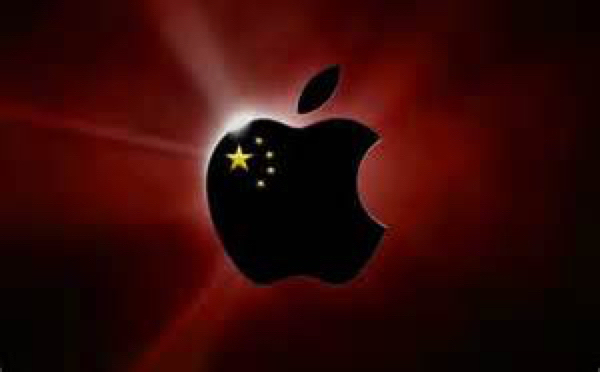The Free Enterprise Project , a conservative shareholder activist organization calls on Apple and Amazon “to recommit to protecting human rights after both companies recently, and hypocritically, bowed to Chinese government pressure regarding Internet censorship.”
The FED, which focuses on shareholder activism and the confluence of big government and big business, points out that both companies routinely attack federal- and state-level government actions in the U.S. under the supposed banner of human rights, but have quickly abandoned those principles to do Beijing’s bidding.
Apple recently removed upwards of 60 virtual private network (VPN) services from its app store in China. VPNs allow users to skirt China’s “great firewall” that blocks its citizens from accessing many Internet sites, including Facebook and Twitter.

And, on Tuesday, the company that operates Amazon’s Cloud services in China told customers that they must remove any software that might let them similarly evade the government’s Internet restrictions or risk being shut down.
“Liberal social justice CEOs such as Apple’s Tim Cook and Amazon’s Jeff Bezos like to champion human rights and stand up to local and federal governments here in the United States when it is politically expedient and the stakes are low,” says said National Center General counsel and FEP director Justin Danhof. “But when faced with pressure from a regime such as China that actively squashes the most basic of human rights such as the rights of free speech and expression they seem all too willing to show their true colors and help keep the Chinese people in the dark,”
The FEP is calling on Apple and Amazon to actually commit to expanding human rights rather than offering mere lip service to the cause.”
Cook has told investors that Apple removed the VPN apps because they violate Chinese rules and regulations. He said it’s important to engage with governments even when the company disagreed with their policies.
“We would obviously rather not remove the apps, but like we do in other countries, we follow the law wherever we do business,” Cook said. “We strongly believe participating in markets and bringing benefits to customers is in the best interest of the folks there and in other countries as well.”
He pointed out that there are still “hundreds of VPN apps on the App Store, including hundreds by developers outside China.”
Cook also addressed critics’ comparisons between Apple’s decision to conform to the law in China, versus its refusal in 2015 to help the FBI access an iPhone belonging to one of the San Bernardino terrorists.
“Some folks have tried to link it to the U.S. situation last year. They’re very different,” he said. He added that in the U.S., the law supported Apple. “In the case of China, the law is very clear there. Like we would if the U.S. changed the law here, we have to abide by them in both cases.”
“[Cook’s] decision to assist China’s censorship demands is just another in a long line of examples,” Danhof says. “Cook has also publicly bashed religious freedom laws in the United States, joining with the crowd that falsely claims such measures legalize discrimination against the LGBT community. Yet Cook appears silent about Apple’s operations in 17 nations where homosexuality is actually considered a crime.”
NOTE: Due to the political nature of this post we have turned off comments.
